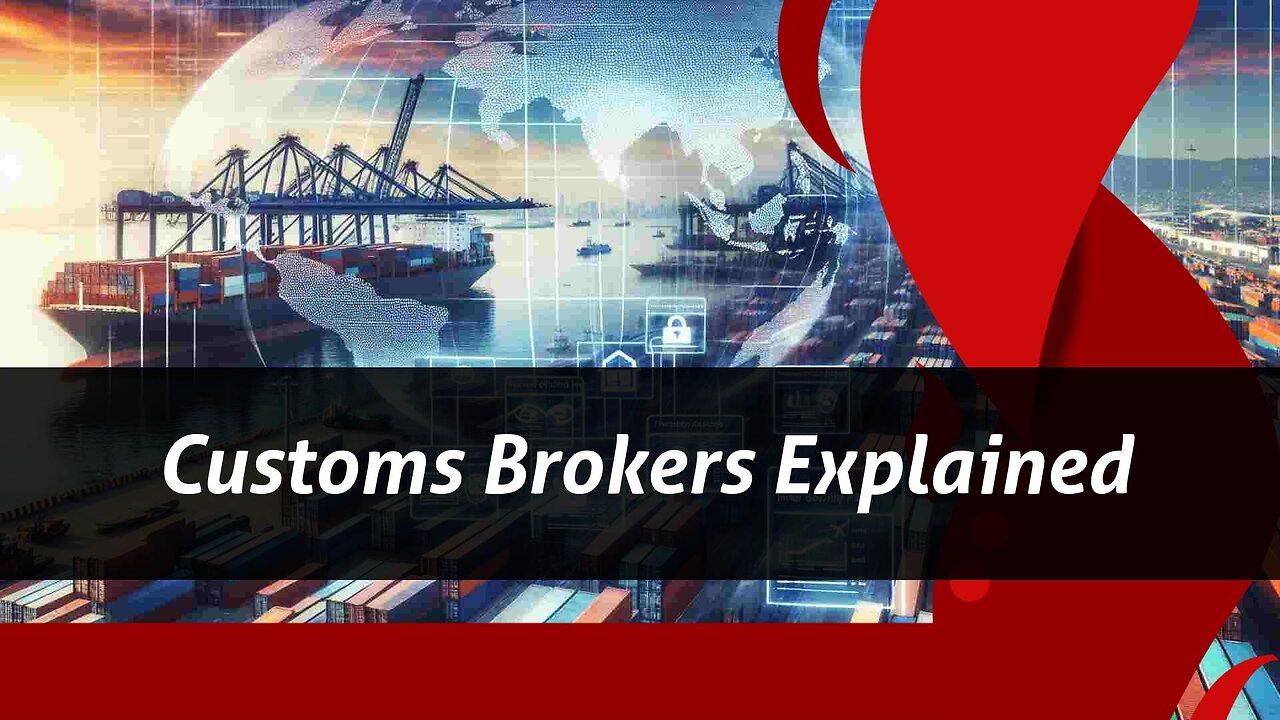Premium Only Content

The Essential Role of Customs Brokers in Intermodal Tank Container Transport
ISF Solution | (832-904-9333)
clearance@isfsolution.com | www.isfsolution.com
In today's video, we will explore the role of customs brokers in assisting with customs regulations for imports by intermodal tank container transport. Intermodal tank container transport involves the movement of goods using interconnected modes of transportation, such as trains, trucks, and ships, in tanks or containers specifically designed for transporting liquid or gas cargo. This mode of transportation offers flexibility and efficiency, but it also comes with its own unique set of customs regulations that need to be adhered to.
A customs broker is a licensed professional who specializes in facilitating the import and export of goods, ensuring compliance with customs regulations. They act as a bridge between the importer and the customs authorities, making the entire process smoother and more efficient. When it comes to intermodal tank container transport, customs brokers have the expertise to handle the specific regulations governing this mode of transportation.
One of the key aspects of importing goods via intermodal tank container transport is obtaining a customs bond. A customs bond is a financial guarantee that ensures the importer will follow all customs regulations, pay any applicable duties, and fulfill the obligations associated with the import.
Customs brokers can assist importers in obtaining the required customs bond, which is necessary for clearing the goods through customs. Another important aspect of intermodal tank container transport is the Importer Security Filing (ISF). ISF is a requirement by US Customs and Border Protection (CBP) that mandates importers to provide specific information about the goods being imported before they arrive in the country.
Customs brokers can help importers accurately complete the ISF form, avoiding any delays or penalties that may arise due to incomplete or incorrect information. In addition to handling customs bonds and ISF filings, customs brokers also play a crucial role in reviewing shipping documents. They ensure that all the necessary paperwork, such as bills of lading, commercial invoices, and packing lists, are accurate and compliant with customs regulations.
By meticulously reviewing these documents, customs brokers help importers avoid any compliance issues and potential delays at the border. Moreover, customs brokers provide valuable advice and guidance to importers regarding customs regulations.
They stay up-to-date with the latest changes in import requirements and can help importers navigate complex regulatory frameworks. This expertise ensures that importers can make informed decisions and streamline their import processes, saving time and resources. Lastly, if any issues or discrepancies arise during the customs clearance process, customs brokers are there to assist importers.
They have the knowledge and experience to identify and resolve any problems promptly, whether it's related to customs duties, classification, or other regulatory matters. This support greatly reduces the risk of delays and ensures a smooth import experience. In conclusion, customs brokers play a crucial role in assisting with customs regulations for imports by intermodal tank container transport.
- #usimportbond
- #isfcustomsbroker
- #uscustomsclearing
- #isfentry
-
-
-
-
-
-
Video Disclaimer Here: For educational purposes - No affiliation with US government sectors.
00:44 Customs brokers are essential for assisting with customs regulations
01:40 They help importers obtain necessary customs bonds and accurately complete Importer Security Filings (ISF) to avoid delays or penalties.
02:17 Customs brokers review shipping documents
-
 1:02:57
1:02:57
In The Litter Box w/ Jewels & Catturd
22 hours agoKASH CONFIRMATION TODAY! | In the Litter Box w/ Jewels & Catturd – Ep. 746 – 2/20/2025
46.1K41 -
 DVR
DVR
VSiNLive
1 hour agoFollow the Money with Mitch Moss & Pauly Howard | Hour 1
7.49K1 -
 LIVE
LIVE
John Crump Live
5 hours agoUSA v. Canada! Bigger Than Just A Game
121 watching -
 LIVE
LIVE
Revenge of the Cis
2 hours agoEpisode 1450: Wet Work
1,573 watching -

vivafrei
8 hours agoKash Patel Confirmation Hearing LIVE! Jan. 6'er Kicked Out of CPAC? DOGE Wins in Court? & MORE!
223K194 -
 5:08:38
5:08:38
Barry Cunningham
7 hours agoTRUMP DAILY BRIEFING: KASH PATEL VOTE | WHITE HOUSE PRESS CONFERENCE | DOGE UPDATE
34K20 -
 1:57:54
1:57:54
The Quartering
6 hours agoRand Paul Praises Trump, Amazon Takes Control of Bond, and Delta Gives Passengers $30,000
70.7K29 -
 1:01:59
1:01:59
The White House
4 hours agoPress Secretary Karoline Leavitt Briefs Members of the Media, Feb. 20, 2025
81.2K56 -
 59:58
59:58
Russell Brand
6 hours agoLive from Mar-a-Lago: The Globalist Empire’s Last Stand – SF541
141K141 -
 35:23
35:23
CryptoWendyO
3 hours ago $1.95 earnedCrypto Chaos Unleashed: Trump Making USA The Bitcoin Capital Of The World
31.3K2